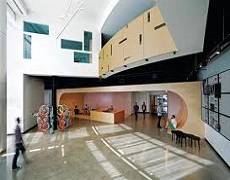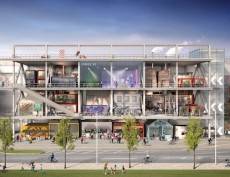November 28, 2013
One in five US workers will spend Thanksgiving day with colleagues
 With most American firms closed today for the country’s annual Thanksgiving celebrations, comes the surprising news that a significant number of workers will in fact be spending the day together after all. According to a survey carried out by CareerBuilder, co-workers may play a role in many Thanksgiving celebrations. Nearly one-in-five (19%) employees say they plan to celebrate Thanksgiving with co-workers either in or out of the office. Those working in transportation and utilities are most likely to spend the day together (28%), with Atlanta (35%) showing the highest percentage of colleagues meeting up on the day and Boston (6%) the lowest. Fourteen per cent of workers said they have to work on Thanksgiving anyway, with hospitality staff the most likely to be on the clock (36%).
With most American firms closed today for the country’s annual Thanksgiving celebrations, comes the surprising news that a significant number of workers will in fact be spending the day together after all. According to a survey carried out by CareerBuilder, co-workers may play a role in many Thanksgiving celebrations. Nearly one-in-five (19%) employees say they plan to celebrate Thanksgiving with co-workers either in or out of the office. Those working in transportation and utilities are most likely to spend the day together (28%), with Atlanta (35%) showing the highest percentage of colleagues meeting up on the day and Boston (6%) the lowest. Fourteen per cent of workers said they have to work on Thanksgiving anyway, with hospitality staff the most likely to be on the clock (36%).






























November 28, 2013
The future belongs to those who leave themselves choices of how to deal with it
by Mark Eltringham • Comment, Facilities management, Flexible working, Technology, Workplace
More →